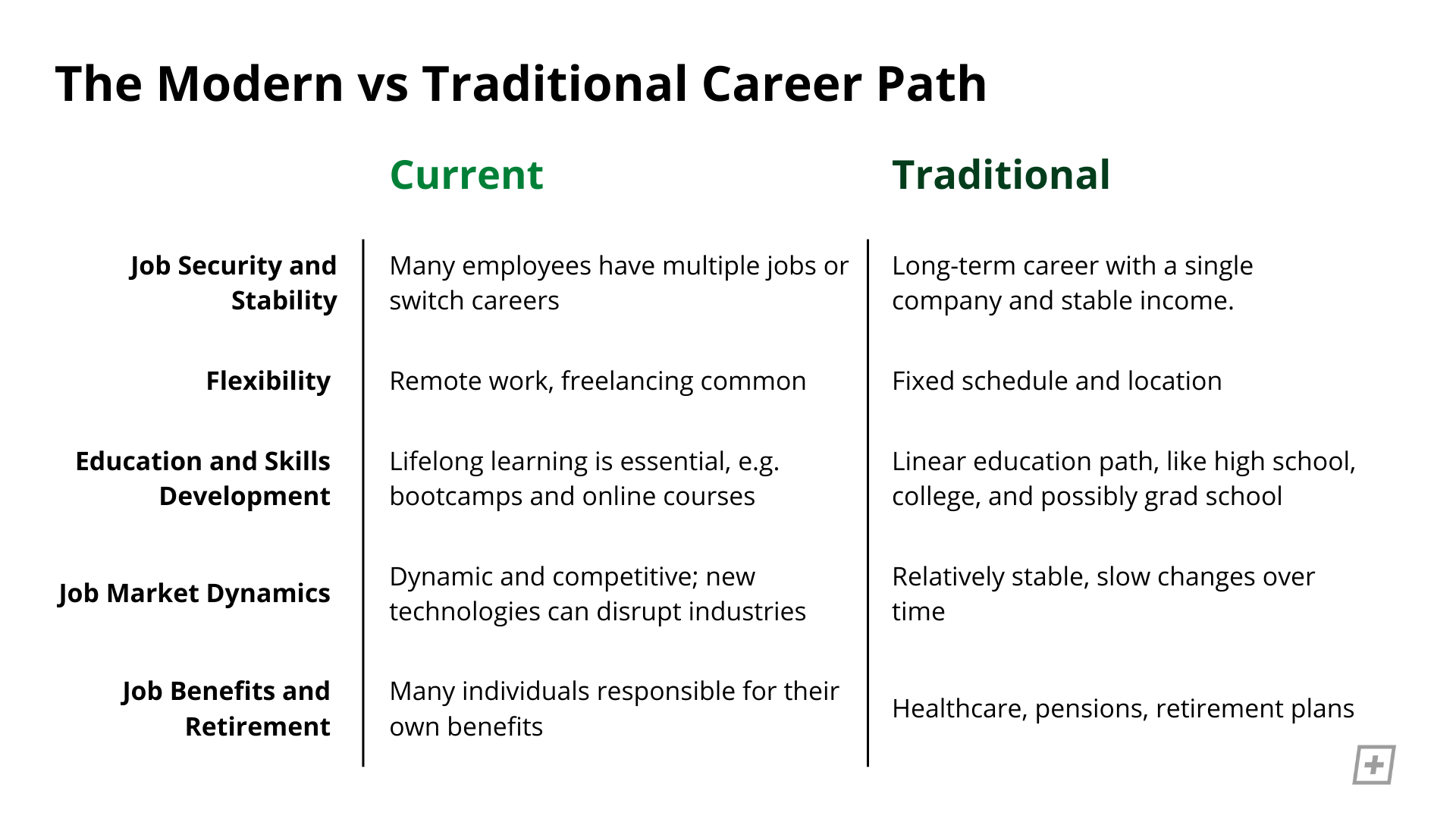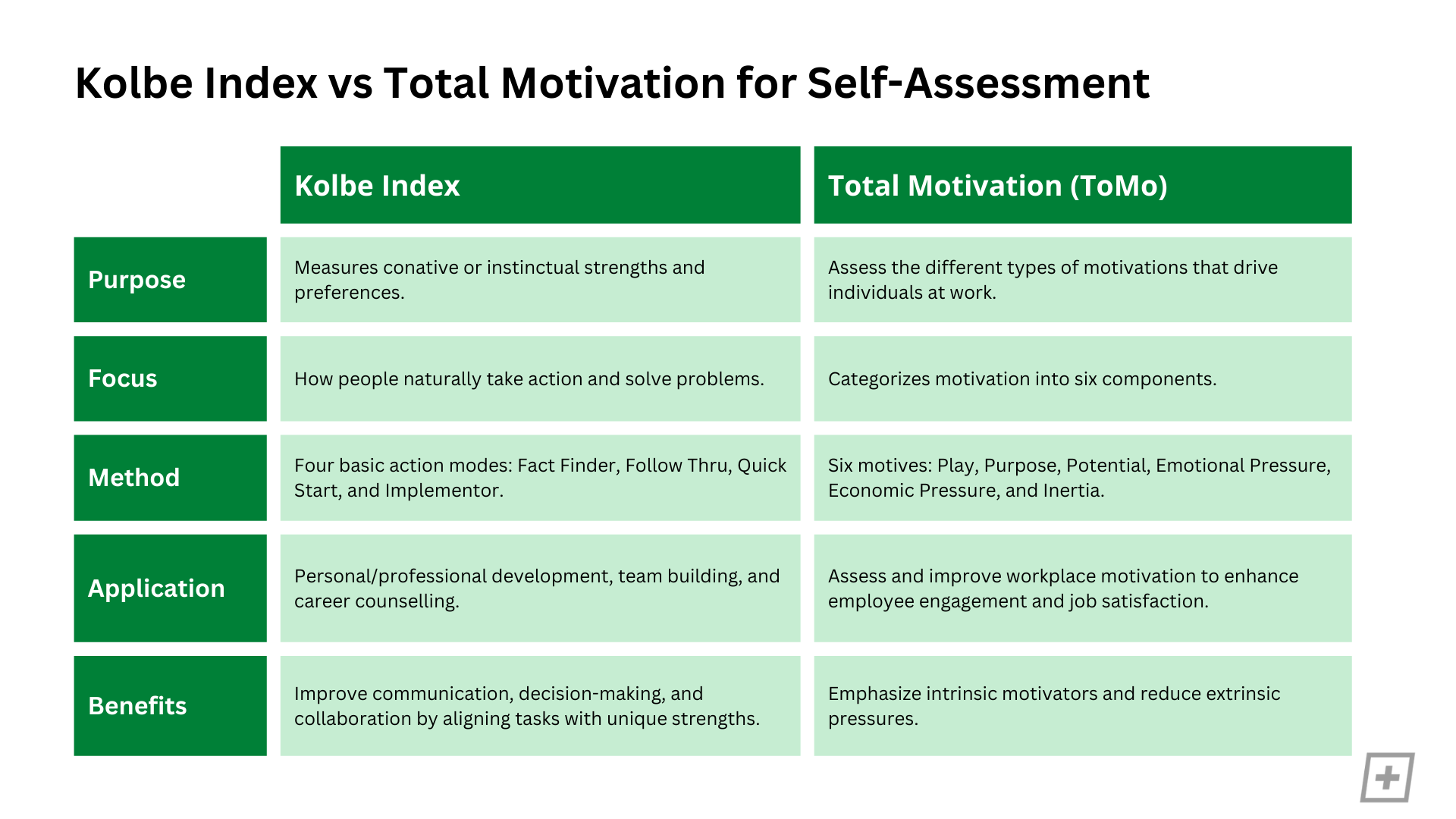Specialization, Continuous Learning, and the True Meaning of Professional Growth
From the earliest memories of our childhood, many of us remember being prodded with the ubiquitous question, "What do you want to be when you grow up?" For some, the answer might have been a heartwarming "astronaut" or "firefighter," while for others it could have stemmed from visions of grandeur: actor, musician, doctor, or professions linked with fame, affluence, or prestige.
As adults, it's intriguing to revisit this question. How did you choose your current career? In what ways does it align - or completely differ from - your dreams as a kid?
Many people base their career aspirations on external validations: the glamor of a renowned job title, the allure of a hefty paycheck, or the societal prestige associated with certain roles. But these metrics are superficial. While they might offer short-lived satisfaction, they might not align with your passion or strengths, potentially leading to unfulfillment or burnout.
As we delve deeper, we'll unpack why such reasons might be misguided and explore the profound impact they can have on one's professional journey in the tech realm.
Asking Children to Define Their Career Aspirations
While seemingly innocent, the question "what do you want to be when you grow up?" can be riddled with pitfalls.
Foremost, it often paints an incomplete, if not skewed, picture of professions. Individuals might be lured into a career with scant understanding of its day-to-day realities. A child dreaming of becoming a renowned software developer, for example, might be unaware of the meticulous coding sessions, the debugging marathons, or the intricacies of collaborating within a team. They may be taken aback by the unknown challenges and hardships of their chosen profession, finding that the anticipated prestige doesn't always align with the grind of the actual job.
It also assumes a linear career path. Today's job market, especially in tech sectors, is characterized by frequent shifts. As technologies advance and industries pivot, professionals often find themselves in positions where they must perpetually adapt, reskill, and relearn. The notion of joining a company and ascending its ranks in a predictable fashion has been replaced with a dynamic landscape, replete with new roles, unexpected turns, and novel learning curves.
And what happens if we don’t achieve our dreams?
Career aspirations formed in childhood are inherently without understanding. You don’t know what work will be like; you have no knowledge of what each job would be like, or how you’d feel in it.
Yet, if dreams don't manifest as expected, it can be a blow to your self-worth. This can have a profound impact on our mental health. Societal benchmarks of “success” - money, credentials, awards - can cast shadows of doubt, even on the most accomplished professionals.
It becomes essential, then, to redefine success. Instead of monumental achievements, perhaps it's the small victories, the continuous growth, and the skills acquired along the journey that deserve celebration.
What Does “Growing Up” Actually Mean?
The phrase "growing up" seems simple, but it’s deeply layered with nuance and interpretation. Society often imparts its own definitions and expectations on what it means to "grow up." For many, it's a linear roadmap: childhood, followed by education, a stable career, perhaps marriage, and then starting a family. This perspective, however, fails to capture the essence of "growing up" as a ceaseless journey of learning and self-development.
Across cultures and continents, the understanding of "growing up" varies widely. In some cultures, reaching a certain age might be the ceremonial induction into adulthood. In others, specific milestones or rites of passage mark the transition. However, boiling down the intricate process of maturation to a single event or age can be overly simplistic. Adulthood is not a switch flipped at a specific moment; it's an ongoing evolution, colored by experiences, relationships, triumphs, and even setbacks.
Maturing and learning are intertwined in the very fabric of growing up. Every new challenge faced, every lesson learned, contributes to our personal growth and understanding of the world. It's essential to recognize that the journey into adulthood extends beyond just age or the acquisition of a specific job title. It's a confluence of factors, both tangible and intangible, that shape our transition into the ever-evolving phase of "grown-up" life.
The True Meaning of a Job
At its core, what really is a job?
If we strip away the layers of societal prestige, influence, and stereotypes, a job boils down to a set of tasks and responsibilities that collectively push towards a broader goal or mission. It’s a role we play within the grand theater of an organization or society. But many of us conflate our job with our identity. As a result, many of us end up viewing our jobs as definitive yardsticks of success and self-worth.
Yet a job’s societal perception can be starkly different from the lived reality. A revered surgeon might grapple with the weight of life-altering decisions behind closed doors. A software developer, celebrated for a revolutionary product, might wrestle with long hours and impending burnout. A job, while an integral part of our lives, doesn't capture the full essence of our identity or the roles we play outside the workplace.
A Reflection on my own Professional Journey
Reflecting on personal experiences can often illuminate these notions. As I navigated my twenties, work became a defining, albeit rocky, pillar. Tasks piled on and deadlines loomed. Burnout wasn't just a risk—it became synonymous with my employment. This period saw me transition through multiple jobs, each with its own set of promises and challenges. Within my first decade in the professional realm, the change was constant. This personal journey underscores the significance of understanding that a job, while impactful, is merely a chapter in the ever-unfolding book of life.
The Problem with Traditional Career Guidance
Today, many career guidance resources are suited for a conventional, primarily linear, path. A one-size-fits-all approach often fails to account for the individual's unique aspirations, talents, and circumstances. And antiquated tools and methods - think career fairs and outdated aptitude tests - seem ill-equipped to address the dynamic nature of today's job market.
But rapid innovation, shifting economic dynamics, and the blurring of traditional job roles necessitate personalized and adaptable career development tools. Rather than static guidance, resources should evolve in tandem with individual growth and market changes.
The Importance of Continuous Growth and Lifelong Learning
Gone are the days when a single degree could secure one's professional trajectory for decades. Continual skill development and adaptability are no longer just commendable traits but essential ones.
This shift underscores a pivotal realization: seeking a direct, definitive answer to career choices is a fallacy. In truth, the path to professional fulfillment is iterative, requiring consistent reflection, learning, and, occasionally, course correction. It's high time our career guidance systems evolve to mirror this reality.
The Value of Self-Assessment at all Career Stages
While external guidance can offer direction, at the end of the day, you are the compass for your professional journey. There are a number of tools and resources you can use to assess yourself at various stages of your job, helping you better understand yourself, career path, and goals.
For one, behavioral assessments have emerged as indispensable tools in making informed career decisions. They help peel back the layers of our personalities and preferences, revealing insights that can point us towards roles and industries where we're most likely to thrive.
Tools like the Kolbe Index A and Total Motivation aren't mere psychometric tests. Instead, they serve as bridges between our inherent behaviors and optimal work environments. For instance, while the Kolbe Index A delves into an individual's instinctive methods of operation, Total Motivation explores what truly drives a person in a work setting. The combination of such tools allows for a holistic view of oneself, addressing not only our abilities but also our motivations and passions.
Of course, tools and tests are only part of the picture. The journey towards a fulfilling career is as much about introspection as it is about exploration. It's not just about where we can succeed, but also where we find purpose and alignment. Coupling our values with our skills and knowledge can help build satisfaction and longevity in our chosen path.
The Value of Specialization & Continuous Learning
There is an undeniable power in specialization, a unique kind of magic that emerges when someone delves deeply into a niche they are passionate about. This nuanced expertise not only distinguishes them in the market but often aligns closely with personal fulfillment.
At the heart of specialization lies a deep connection between your passions and professional path. And the journey begins with introspection.
Questions to ask yourself
What activities ignite your spirit? Which tasks do you find yourself losing hours in, purely due to the joy they bring? This self-assessment is the first step in aligning one's career with passion.
However, passion alone isn't enough. You need to critically evaluate your skills and see where gaps exist. From here, research plays a pivotal role. Dive into industries and professions that resonate with your interests. Understand the nuances, challenges, and opportunities. Talking to professionals in the field can provide practical insights and might even open doors to opportunities.
Gaining experience: start small
When you’re ready, start gaining experience any way you can. Whether it's by taking on tiny projects, volunteering, or opting for internships, these experiences mold the abstract passion into tangible skills. At the same time, you’ll build a portfolio that showcases your journey, demonstrating your commitment and expertise.
Specialization can truly set you up for a truly fulfilling career. It creates a unique space for you in the market, while also considerably reducing burnout. When work doesn't feel like mere work, curiosity thrives, and engagement deepens.
Conclusion
Our careers unfold through a series of decisions, risks, learnings, and evolutions. Instead of merely chasing titles or paychecks, we must ask deeper questions: What truly makes me happy in my work? What kind of impact do I want to leave? How do I value and foster my work relationships?
True career success goes beyond conventional metrics. It’s also about happiness, meaningful impact, and fulfilling work relationships. When these elements align, the workplace transforms from a mere place of employment to a nurturing environment for personal and collective growth.
In conclusion, our goal should be to adopt a more enlightened, fluid perspective on career choices. The pathways of our professional lives are not straight lines; they twist and turn, presenting challenges and rewards alike.



